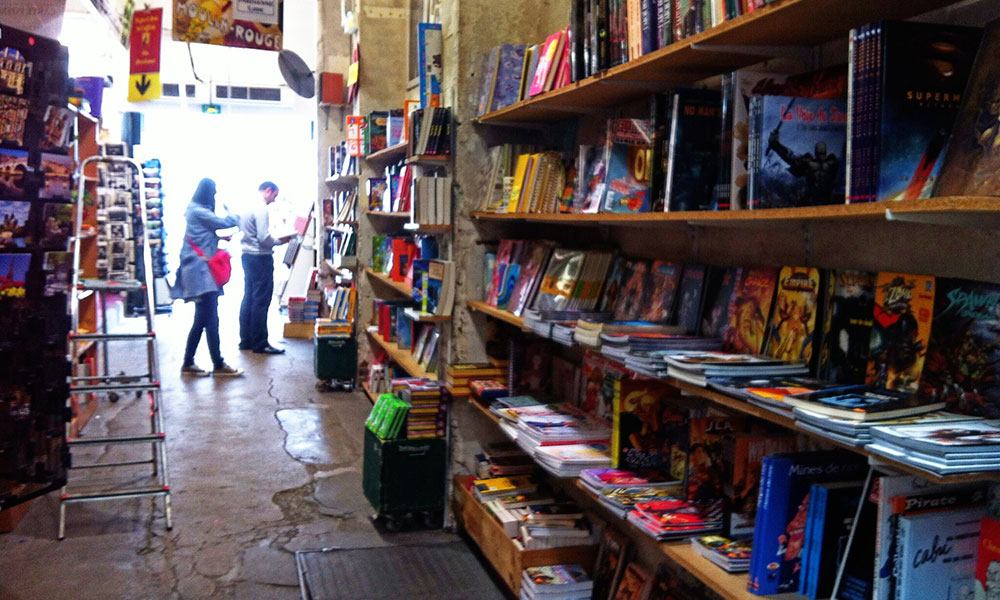
Indie Bookstores Aren’t Surging Everywhere
One of the greatest American success stories in recent years has been the strong recovery of the independent bookstore—despite a huge surge in online competition. But in the United Kingdom, an industry group is working overtime to fix a staggering decline in its indie bookstores.
The independent bookstore is a creature that gets much of its power from nostalgia and the sheer fascination with digging into a shelf of books.
One place it does not get its power from, however, is the internet. Competition from Amazon and similar companies has proved difficult to shake—and has caused some of the country’s largest booksellers, like Borders, to close down entirely. But the independent bookstore is a business model that’s shown surprising resilience in an age when low prices and free shipping seem to win the day.
In recent years, U.S. independent booksellers have seen some strong gains in their ranks, increasing 27 percent since 2009, according to data from the American Booksellers Association (ABA). That growth is especially impressive considering the rise of electronic books over the same period.
“The enthusiasm and optimism is pretty staggering,” ABA CEO Oren Teicher told The New York Times. “Despite all the quantum leaps in technology, the fact is nothing beats a physical, bricks-and-mortar store to discover books that you didn’t know about.”
A Tale of Two Countries
But the resilience that has buoyed the U.S. market isn’t universal.
In Ireland and the United Kingdom, the number of bookstores fell by a quarter between 2009 and 2014, according to the Booksellers Association (BA). Last year, the total number of independent stores in the region fell below 1,000 for the first time.
“Everyone should sit up and take notice of this,” BA Chief Executive Tim Godfray wrote in a blog post last year. “The book trade, the government and the general public need to realize that if we don’t take action now, the future of our bookshops—and therefore the health of the publishing industry and reading itself—is at risk.”
Some of the reasons for the difference may be economic in nature: The Times notes that British retailers have higher costs than their American equivalent in some senses—particularly when it comes to rent—as well as tougher competition.
But BA is on top of the issue. Last year, the British industry group took steps to reverse the trend, launching an awareness campaign called Books Are My Bag and formally taking part in “Super Thursday,” a Black Friday-type event that rose from the observation that more books hit the shelves during Thursdays in October.
And on the additional costs front, BA also has pushed the British Parliament to stop charging “business rates,” a tax on businesses that operate physical locations in the U.K., for small businesses.
While the shutdown of independent bookstores continued through 2014, there are positive indicators that these efforts are working. A study of independent bookstores by The Bookseller, as well as a separate BA study, found that book sales were up at many U.K. retailers during the holiday season—the first increase in years.
Will it be enough to keep the magic of bookstores alive? It would sure be a good story if it did.
(Maya Karmon/StockSnap.io)






Comments